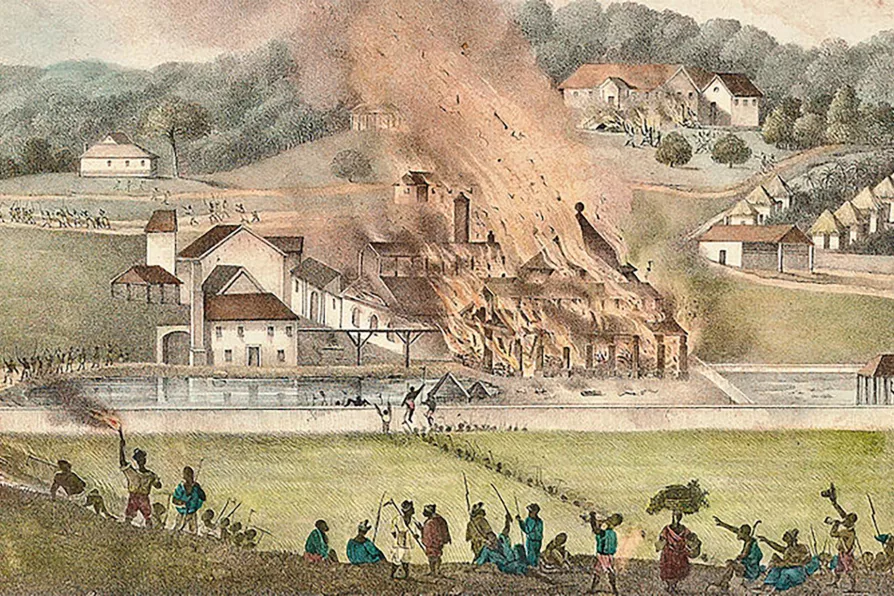SOLOMON HUGHES says Starmer has done everything the Westminster set think Labour leaders should do – but it hasn’t endeared him to the public
To understand Caribbean ‘decolonisation’ look up Richard Hart
ROGER McKENZIE recommends the work of the 20th-century Marxist activist, a founding member of Jamaica’s People’s National Party and a historian whose books showed the primacy of slave revolts in ending slavery itself

 UPRISING: A plantation set alight during the Great Jamaican Slave Revolt of 1831-32
[Public Domain]
UPRISING: A plantation set alight during the Great Jamaican Slave Revolt of 1831-32
[Public Domain]
MARXIST thought in the Caribbean extends beyond the obvious trailblazers of the Cuban revolution.
The likes of Cuban revolutionaries Fidel Castro, Che Guevara, Trinidad’s CLR James, Guyana’s Walter Rodney and Grenada’s Maurice Bishop have all made a huge contribution towards the theory and practice of Marxism in the region.
The problem is that after these names most people, even seasoned activists, will begin to struggle to add many other names, especially women, from the region to this list of great thinkers and activists.
Similar stories

On the anniversary of the implementation of the 1833 Slavery Abolition Act, ROGER McKENZIE warns that the legacy of black enslavement still looms in the Caribbean and beyond

The Guyanese scholar’s groundbreaking work revealed how Europe deliberately underdeveloped Africa while using its resources and people to fuel Western capitalism, writes ROGER MCKENZIE

ROGER McKENZIE reflects on the enslavement, endurance and rebellion of Africans trafficked across the Atlantic and the untold sufferings of unknown ancestors











